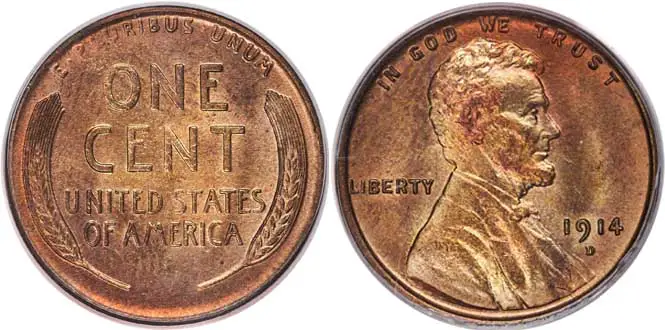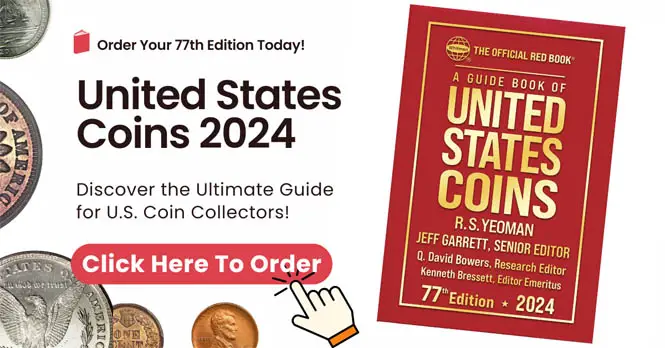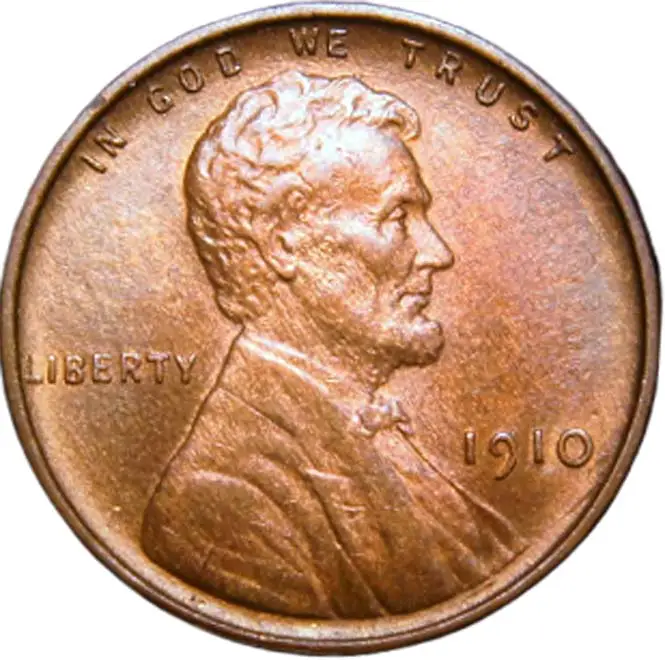- Home
- Lincoln Cents
Lincoln Wheat Cents 1909 - 1958

Lincoln wheat cents are one of the most popular US coins available for people to collect.
Almost everyone has one in their collection because they are so easy to find and most collectors started their collection with a 'wheatie'.
The best quality Lincoln wheat cents were usually minted in Philadelphia because the dies were sharp and polished in order to produce the proof coins.
San Francisco and Denver had poorer quality dies which were often worn causing lower quality strikes.
When Was The Wheat Penny First Made?
They were first minted on August 2nd, 1909 in Philadelphia and San Francisco and were designed by Victor David Brenner whose initials can be seen on some versions of the first coins in 1909.
He was commissioned by Theodore Roosevelt to redesign the nation's coinage and create a new one cent coin for 1909 depicting an obverse of the late president Abraham Lincoln.
Later, in 1911, Denver also started producing these pennies.
What Does A Lincoln Wheat Cent Weigh?
The Lincoln wheat penny is 19mm in diameter and weighs 3.11 grams. Most of these US cents are made from a bronze composite which consists of 95% copper, 5% tin and zinc.
A few exceptions to this bronze composition or gilding metal appeared during the war years when copper and tin were needed for ammunition.
In 1943 wheat cents were made of zinc coated steel for a few months and weighed 2.72 grams. Some of these spilled over to the 1944 production and created a batch of rare and value error coins.
Between 1944 and 1946 the coins were made from 95% copper and 5% zinc.
The wheat pennies minted during this World War II period were recycled from copper shell casings and became known as 'shell case cents'.
Are Lincoln Wheat Cents Magnetic?
As most wheat cents are made from a copper composite, which is a non-ferrous metal, they are not magnetic.
However, the zinc coated steel wheat pennies from 1943 and 1944 are magnetic and will stick to a magnet.
This is a good way to spot fake coins. If your bronze Lincoln cent sticks to a magnet, it is a fake. It is most likely a steel cent coated in a copper composite.
What Does A Wheat Penny Look Like?

Image Courtesy Of Heritage Auctions
On the obverse of the coin is a bust of Abraham Lincoln. Above this image is written 'IN GOD WE TRUST'. To the left of the bust is written 'LIBERTY' and at the bottom right of the bust is the date and mintmark. As you can see this coin was minted in 1914 at the Denver (D) mint.
On the reverse on the coin is a pair of wheat ears, one on each side. In the center of the reverse is written, 'ONE CENT UNITED STATES OF AMERICA'. At the top is written 'E. PLURIBUS UNUM' which is Latin for 'ONE FROM MANY'.
When Was The Last Lincoln Wheat Cent Made?
The last wheat cent was produced in 1958. The following year a new penny was designed called the Lincoln Memorial Cent. Unlike the first wheat penny in 1909, the last one isn't anything special when it comes to value.There were 252,525,000 cents from 1958 minted in Philadelphia and 800,953,300 minted in Denver.
Some notable key dates and mint marks to look out are 1909-S VDB, 1909-S, 1914-D, 1922 no mint mark, 1943-D and 1943-P copper, 1944 steel and 1931-S. Some 1917-P, 1955-P, 1958-P and 1936-P coins also had Doubled Die Obverse.
The most valuable wheat penny ever sold was the 1943 D for a sale price of $1,700,000.
Mint Dates and Values:
| Date | VF-20 | EF-40 | MS-60 |
|---|---|---|---|
| 1909 VDB | $12 | $15 | $30 |
| 1909 (S) VDB | $1050 | $1200 | $1850 |
| 1909 | $6 | $8 | $17 |
| 1909 (S) | $145 | $160 | $350 |
| 1910 | $1.50 | $4 | $18 |
| 1910 (S) | $30 | $55 | $110 |
| 1911 | $2.50 | $8 | $20 |
| 1911 (D) | $30 | $65 | $100 |
| 1911 (S) | $65 | $85 | $200 |
| 1912 | $5.50 | $15 | $35 |
| 1912 (D) | $35 | $85 | $175 |
| 1912 (S) | $45 | $80 | $185 |
Valuation Source: The Official Red Book 77th Edition 2024
Lincoln wheat cents were minted throughout the following years:
1909, 1910, 1911, 1912, 1913, 1914, 1915, 1916, 1917, 1918, 1919, 1920, 1921, 1922, 1923, 1924, 1925, 1926, 1927, 1928, 1929, 1930, 1931, 1932, 1933, 1934, 1935, 1936, 1937, 1938, 1939, 1940, 1941, 1942, 1943, 1944, 1945, 1946, 1947, 1948, 1949, 1950, 1951, 1952, 1953, 1954, 1955, 1956, 1957, 1958.
Click here to learn more about coin collecting.




